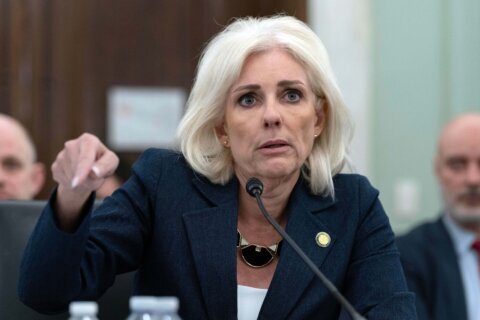WASHINGTON — Virginia is joining the list of states that are cracking down on “lunch shaming,” the practice of schools singling out students because they owe money for food or do not have enough cash to pay for lunch.
A lunch shaming ban passed through the state Senate’s Education Committee Thursday and is now headed to the full Senate.
The House of Delegates passed the bill last week.
“[The legislation] directs school boards to develop policies around how to handle when student school lunch accounts are delinquent,” said Del. Patrick Hope, a Democrat pushing for the bill to pass.
“Some schools will put bright colored stickers or wristbands on the student,” Hope said. “This would require employees, instead of doing that, to direct communications to a parent.”
On any matter related to meal debt, school employees would need to handle the situation through a letter to parents that would be sent home with the student.
The lunch shaming issue has spilled into state legislatures and reached Capitol Hill, as child advocacy groups question whether schools should be allowed to single out a child whose family has not paid for food in any way.
Last year, the U.S. Agriculture Department told districts to adopt policies for addressing meal debts.
The agency did not specifically ban most of the embarrassing tactics, such as serving cheap sandwiches in place of hot meals or sending students home with conspicuous debt reminders, such as hand stamps. However, it encouraged schools to work more closely with parents to address delinquent accounts and ensure children don’t go hungry.
Free and reduced-price meals funded by the Agriculture Department’s National School Lunch Program shield the poorest children from lunch shaming. Kids can eat for free if a family of four earns less than around $32,000 a year or at a discount if earnings are under $45,000.
It is households with slightly higher incomes that are more likely to struggle, experts on poverty and nutrition said.
The Associated Press contributed to this report.







